The Center for Economic Research and Reforms (CERR) conducts a monthly survey among 1,000 entrepreneurs across the country representing various sectors of the economy.
Starting from January 2023, the Business Climate Index of Uzbekistan is periodically published on the international economic portal Trading Economics.
In February of this year, the consolidated business climate indicator increased by 4 points and amounted to 58 points, which assesses the state of the business climate in the country as positive. The growth of the composite indicator was significantly influenced by the dynamics in the agriculture and services sector.
In recent years, quite significant steps have been taken in Uzbekistan to liberalize the business climate. A systematic state policy on business liberalization has been launched, in particular, the entry and conduct of business has been simplified, administrative barriers have been eliminated, many innovations in the taxation system have been implemented, a new mechanism for providing benefits and subsidies for business has been introduced depending on the category of locality with the division of districts into 5 categories.
The reforms carried out significantly change the business regulation systems in the country, contribute to the improvement of the business environment and stimulate the development of the private sector through the creation of a favorable business climate.
In particular, due to innovations in the taxation system, it was possible to activate and ensure the growth of the business climate in the country. The reduction of the VAT rate from 15 to 12% had a positive effect on the growth of the business climate in the country, which in January was not so noticeable, including due to the weather crisis caused by abnormal cold.
For reference: In February of this year, taxpayers for the first time submitted to the tax authorities tax reports on VAT at the rate of 12%. In January of this year, reports were submitted for December 2022, when the rate of 15% was in effect.
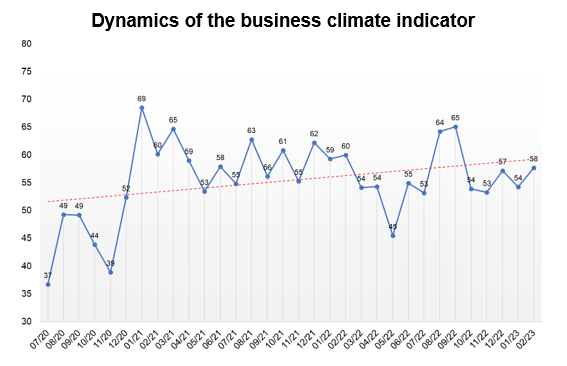
The study showed that the number of respondents who noted the current state of the business as "good" was 41%, against 14% who rated it as "bad".
20% of enterprises increased the number of their employees, and 40% noted an increase in demand for their goods/services.
During the month, the indicator of the current state of business increased by 3 points and amounted to 37 points, which is explained by improvements in agriculture, industry and services.
Nevertheless, there was a decrease in the indicator of the current state in the construction sector.
The indicator of expectations of business development prospects in the next 3 months remains at a fairly high level – 80 points, which is supported by high optimism in all industries.
In February, a significant jump in the expectation indicator in the construction sector was recorded.
The share of entrepreneurs expecting an improvement in the state of business in the next 3 months was 82%, 75% expect a further increase in demand for goods and services, and 68% plan to increase the number of employees.
26% of entrepreneurs expect an increase in prices for their goods/services in the next 3 months.
In general, the relationship between the indicators of the current situation and expectations means that the positive trend in economic development will continue in the next 3 months.
Analysis of changes in indicators
49% of entrepreneurs answered that they faced barriers in their activities. Obstacles in access to financing and land plots, problems with tax administration and tax rates, as well as interruptions in electricity and gas supply were noted.
The reduction of various obstacles in doing business can also be a factor of improvement in indicators. For example, during the month, the share of respondents noting the absence of any obstacles increased by 1%.
In the industrial sector, the share of entrepreneurs experiencing problems with access to finance decreased by 2%, complaints about high tax rates decreased by another 6%.
However, the share of such barriers in the industrial sector as difficulties in accessing new land plots and gas supply problems remained virtually unchanged.
Representatives of agriculture have become less likely to mention water supply problems (-4%) and high tax rates (-3%).
In the construction sector, the number of complaints regarding tax administration problems decreased by 3%, and the proportion of those experiencing difficulties with gas supply decreased by another 4%.
In the service sector, the share of problems related to electricity and gas supply significantly decreased by 8 and 3%, respectively.
Feruzbek Davletov, CERR
Tel.: (+998) 78 150-02-02 (416)
Public Relations Service of the CERR
Tel.: (+998) 78 150-32-20 (417)

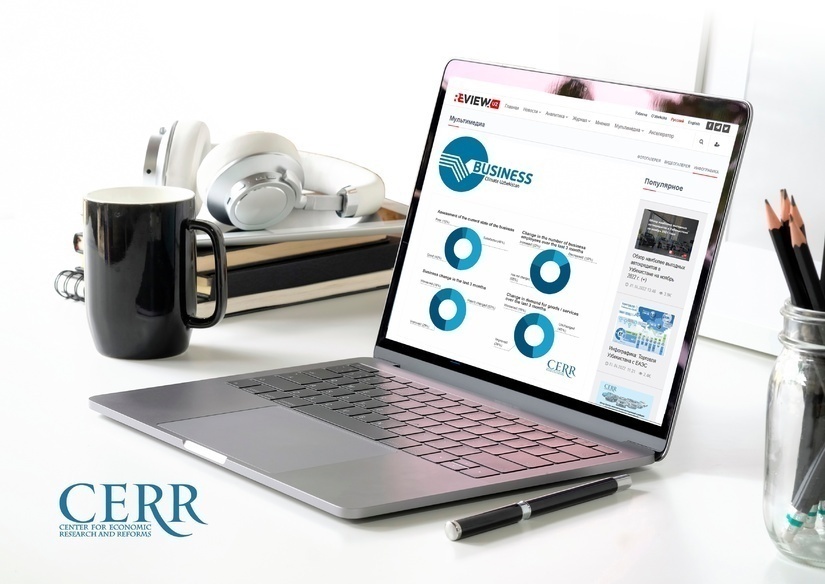

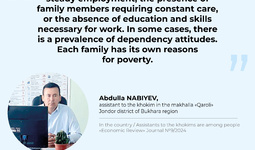
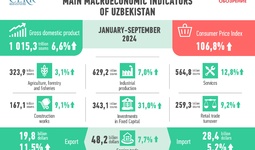










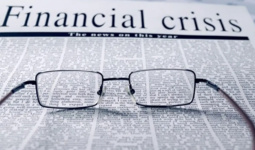





leave a comment